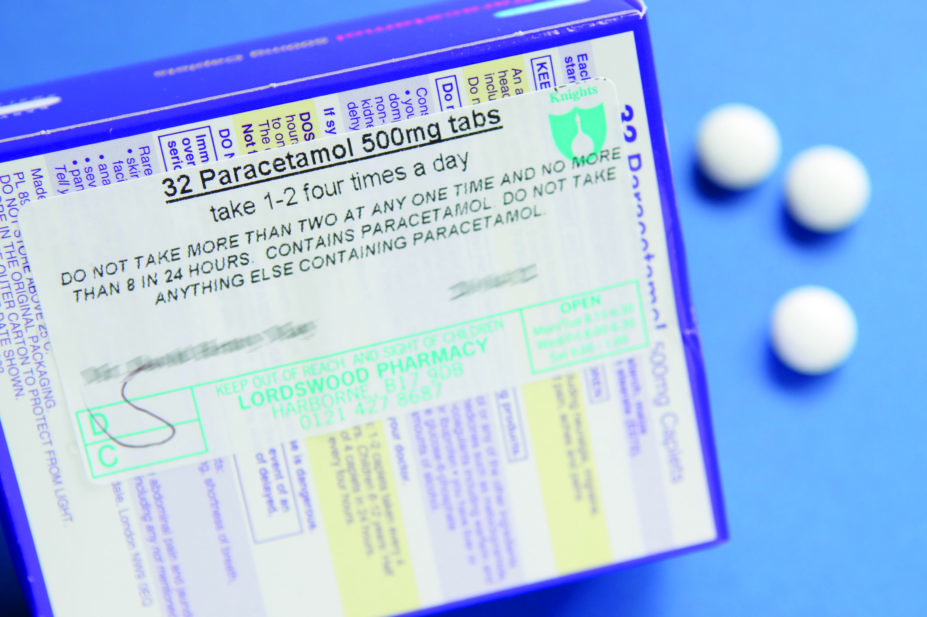
Steven May / Alamy Stock Photo
The NHS spent £70m on prescriptions for paracetamol in England in the past financial year, according to figures revealed to MPs last week.
Some 21 million items were dispensed between 2016–2017 at a net ingredient cost of £3.23, written replies to parliamentary questions from Labour MPs confirm.
Steve Brine, minister for public health and primary care, gave written details of the NHS bill for providing paracetamol on prescription for the past five years, which were based on figures from the official Prescription Cost Analysis.
The current NHS paracetamol prescription bill, however, is lower than the five-year high of £86.8m in 2014–2015, when 23 million items were dispensed at a net ingredient cost of £3.72.
In 2015–2016 the NHS cost was £84.8m, with 22 million items dispensed at a net ingredient cost of £3.74.
Brine also revealed, in another written reply, that the Department of Health has no plans to introduce legislation that would allow GPs to directly provide paracetamol to patients without the need for a prescription. He confirmed that “these drugs remain available to patients over the counter”.
NHS England confirmed on 4 July that it will continue with its commitment — made before the 8 June general election — to review the availability on prescription of what it describes as “low-value items”, which it estimates could save around £128m a year.
It originally announced in March that it was working on new guidance governing the future NHS prescribing of 10 medicines that had been deemed “ineffective, unnecessary, inappropriate or unsafe”.
The list includes some gluten-free foods, Omega 3 fish oil and tadalafil as an alternative to sildenafil (Viagra; Pfizer).
NHS England said there were plans to add other medicines to the list, including some which are readily available over the counter “at a far lower cost”, which it said are of “relatively low clinical value or priority”. These could include treatment for coughs and colds, antihistamines, indigestion and heartburn medication, and sun cream.
In a statement, NHS England said on 4 July: “GPs are responsible for only issuing appropriate prescriptions to their patients, and the overall cost of prescribing has been coming down. We have publicly committed to a public consultation on further changes in this area.”
Commenting on the statement, the Royal Pharmaceutical Society (RPS) said it was naïve to think that taking paracetamol off prescription would save the NHS money.
Sandra Gidley, chair of RPS England, said: “Asking people to pay for painkillers is a deceptively simple solution, which fails to acknowledge that affordability is central to accessing over-the-counter and prescription medicines.”
If patients cannot afford to buy their medicines, their illness deteriorates, putting more strain on services and costing the NHS more money in the long run, she argued.
She added: “Just because something is available over the counter doesn’t mean people should be denied an effective treatment on prescription. Those being prescribed large amounts of paracetamol need it to ease the pain of conditions like arthritis, nerve pain or fibromyalgia. This is needed on a daily basis to enable them to function, which is entirely different to occasional use of paracetamol for headaches by the general population.”
You may also be interested in

Tackling the NHS drug budget: why we set up a regional collaboration for medicines value

Lack of joined-up working between pharmacy and general practice is ‘nonsensical’, says former BMA chair
